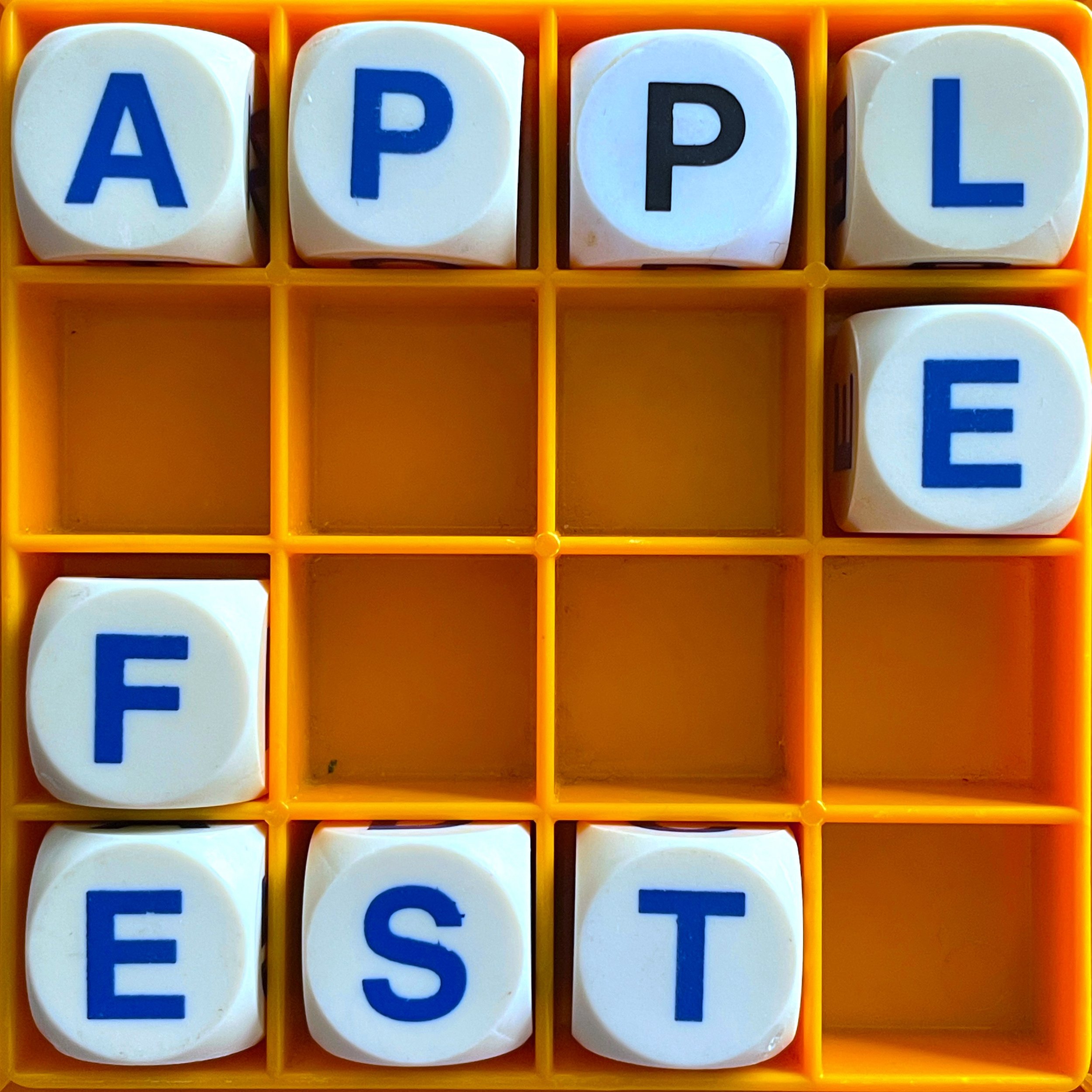It's our annual end of year parade of all the extra good stuff this year's podguests talked about, including a mythical disappearing island, geese, human dictionaries, the dubious history of the Body Mass Index, Victorian death department stores, and much more.
Read moreAllusionist: Apple Fest!
All aboard, we're off to the 2023 Apple Festival at the University of British Columbia, to taste some apples and, most importantly, enjoy some apple names. And before that, we return to the classic Sporklusionist applesode to refresh our memory about how apple names are chosen - eponyms, portmanteaus, geography, or corporate R&D, just like how our ancestors named apples.
Read moreAllusionist 159. Bufflusionist
Grab your stake and crucifix pendant, we're going vampire-hunting! Well, vampire-etymology-hunting. The podcast Buffering the Vampire Slayer, which recaps the TV show Buffy the Vampire Slayer episode by episode, invited me to answer their listeners' questions of language that the show had provoked. Together with BVTS hosts Kristin Russo and Jenny Owen Youngs, I tackle the etymology of coven, vampire/vampyre, wigging out, the name Buffy and Bovril; as well as google as a verb, conlang on TV, and why Latin is so often the language of spells and spookiness.
Read moreAllusionist 128. Bonus 2020
To round off the year, here are some choice cuts from the Allusionist vault of interesting things that guests said that there wasn’t room for in the original episodes. Brace yourself for a vivid name for dust bunnies, the scary side of glamour, another reason to be grateful for bears, and Schrödinger’s Fart.
Read moreAllusionist 116. My Dad Excavated A Porno
The word ‘pornography’ arrived in English in the 1840s so upper class male archaeologists could talk about the sexual art they found in Pompeii without anyone who wasn’t an upper class male archaeologist knowing about it. Even though, at the same time, Victorian England was awash with what we’d now term pornography.
Dr Kate Lister of Whores of Yore and pornography historian Brian Watson of histsex.com explain the history of the word, and how the Victorian Brits dealt with material that gave them stirrings in their trousers. Sorry, ‘sit-down-upons’. ‘Inexpressibles’! If they couldn’t even express trousers, it’s little wonder they struggled to cope with pornography.
Read moreAllusionist 107. Apples
Late 2019 will see the biggest apple launch of our lifetimes. 22 years in the making, ripening on millions of trees into picture-perfect redness, here comes the WA38, more snazzily known as the Cosmic Crisp. The name was the result of a year of focus groups, taste tests and word associations - a far cry from when apples were named after whichever end of a cat they resembled.
Read moreAllusionist 100. The Hundredth
To mark the 100th episode of the Allusionist, here’s a celebratory parade of language-related facts.
Read moreAllusionist 97. The Future Is Now?
“There are two ways to say ‘The future is now’: you can say it optimistically, like, ‘The future is now! Isn't that cool?’ Or you could be like, ‘The future is now, and we're totally screwed.’” Rose Eveleth, of the future-envisioning podcast Flash Forward, tracks the past and present of one of her favourite phrases.
Read moreAllusionist 69. How the Dickens Stole Christmas
Charles Dickens wrote about the plight of the impoverished and destitute members of British society. So how come his name is a synonym for rosy-cheeked, full-stomached, fattened-goose, hearty merry "God bless us every one" Christmas?
Avery Trufelman and Katie Mingle of 99% Invisible report from the streets of Victorian London at the annual Dickens Christmas Fair in Daly City, California, while historian Greg Jenner explains the origins of the festive traditions for which Dickens gets the credit, without even wanting the credit - in fact, his motivation for writing A Christmas Carol was far from a cash-in on Christmas.
Read moreAllusionist 28: WLTM part I
iTUNES • RSS • MP3
Your online dating profile is the latest spin on a 300-year-old tradition of advertising yourself in order to find a spouse, a sexual partner, or someone to take care of your pigs.
Francesca Beauman, author of Shapely Ankle Preferr’d: A History of the Lonely Hearts Ad, digs into lonely hearts ads to see how British society and desires have evolved over the past three centuries.
WARNING: Some of the content is a little saucy, but not, like, swimming in sauce.
READING MATTER:
Reviews of hundreds of different dating sites? You got it.
I love reading the Blind Dates in the Guardian each Saturday, and The Guyliner’s dissection thereof shortly afterwards.
Atlas Obscura tests the Victorian seduction technique of reading aloud.
Not so much a lonely heart ad as a curious soul ad, but it resulted in one of the most intriguing books I’ve ever read: The Life Swap by Nancy Weber. Read about it here (NB spoilers).
Warlock: offensive term?
The transcript of this episode is at theallusionist.org/transcripts/wltm-i.
RANDOMLY SELECTED WORD FROM THE DICTIONARY:
extraposition
CREDITS:
Find Francesca Beauman at francescabeauman.com and buy her books, including the excellent Shapely Ankle Preferr’d, from your usual book-buying places.
This episode was produced by me, Helen Zaltzman.
Martin Austwick provided all the music.
Matthew Crosby provided his voice.
Allusionist listeners provided their dating profiles, for which I am extremely grateful.
WLTM you at facebook.com/allusionistshow, twitter.com/allusionistshow and twitter.com/helenzaltzman.
This is a two-parter, and the second half is an absolute belter, so return next week to hear it.








